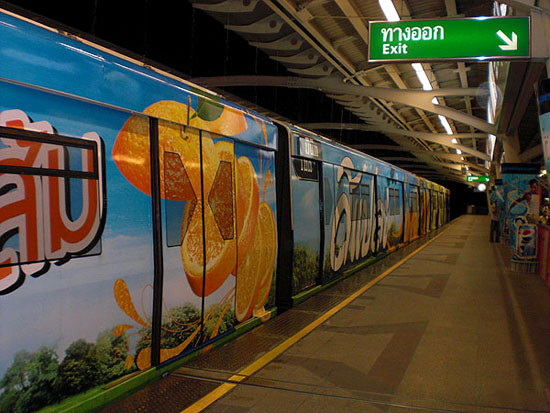
Recently, I stumbled upon some old websites talking about traffic problems in Bangkok. Written around 10 years ago, they mentioned how Bangkok had one of the worst traffic problems in the world with unbelievably long traffic jams.
However, they went on to say once the sky train and the underground lines were opened, these traffic jams would become a thing of the past. Fast forward 10 years and, in Bangkok, we are still talking about how terrible the traffic jams are and how nothing has changed.
But why is this?
Why are Bangkok traffic jams so bad?
Bangkok’s government did do a big push to improve public transportation in the 1990s by adding mass transit systems. The sky train opened in Bangkok in 1999, and it is excellent.
It reaches only limited areas of the city however and, although expansion has been promised for the last five years, it is taking a lot longer than was initially planned. (** Most sky train expansion is now slated to open later on this year (2019) or sometime next year so, yes, progress!)
The underground train system opened in July 2004. Initially, the passenger count was good but, due to it being more expensive than the sky train, the number of riders using it every day has fallen considerably.
Estimates when it opened said over 400,000 people would use it daily. Lately, it’s had more like 175,000 passengers every day.
Not only is it more expensive than the sky train, but it also goes to some of the same places the sky train goes to. As this is the case, Thais prefer to use the sky train because at least, when you are traveling, there is something to see out of the window.
An accident on the line in 2005, which injured more than 140 people, didn’t help its cause much either.

Thais are obsessed with cars
People’s expectation that traffic jams would lessen in Bangkok once the underground and sky train opened also did not take into account the Thai obsession with the car.
Owning a car is a status symbol and even the lower middle-class, who can barely afford to get through to the end of each month, often spend all their money on buying one.
This is causing even more congestion of Bangkok’s roads, and it is expected to continue. After all, every year, more cars are added to the capital cities roads and less people use public transportation.
The Thai government is also to blame.
Before September 2006, Thailand was headed by Prime Minister, Thaksin Shinawatra. He promised again and again to solve the traffic jams but not much was done to solve the problem.
Then after the military coup in 2006, the problem got worse. The military government slashed spending on programs like public transportation, so they could increase spending on the military by more than 30%.
Adding to the problem is this – the people in power in Thailand, the mega-wealthy, really have no incentive to improve the traffic problem. After all, it doesn’t often affect them. They pass through Bangkok traffic with the aid of police escorts, so why would they care that the average Thai spends half his day sitting in traffic?
This also shows how short-sighted many Thais in high positions are. They don’t think about all the productivity lost, while Thailand sits in traffic jams or equate it with their falling business profits.
Nor do they seem to question why Thailand is falling further behind countries like Malaysia and Vietnam in productivity and exports.
Bangkok traffic jam problems have to be solved in order to compete with the rest of South East Asia.
Neither can the half-hearted public transportation system continue to be left the way it is. Bangkok’s government must increase the spending on public transportation and expand the present sky train and underground train systems.
They must also come up with a workable plan to persuade Thai citizens to forgo buying that expensive car, and instead support the public transportation system.
Only then will Thailand’s economy keep up with, and hopefully surpass, the more efficient countries in this region.
